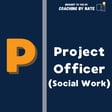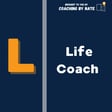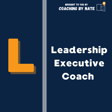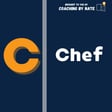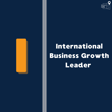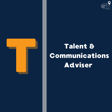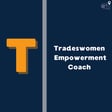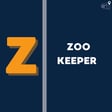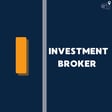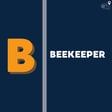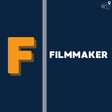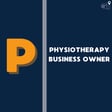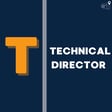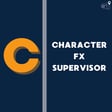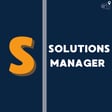Become a Creator today!Start creating today - Share your story with the world!
Start for free
00:00:00
00:00:01

Author: an Award-winning television producer who overnight changed careers
In this week's podcast, we're excited for you to meet Amy. Amy is an Award-winning television producer who practically overnight swapped careers and became a published Author. In this episode, you'll hear about some of her time management strategies, some tips on becoming published and some fantastic insight into what it takes to become an Author.
Show notes: https://www.thecareerchangecoaches.com/author-an-award-winning-television-producer-who-overnight-changed-careers/
Transcript
Introduction to A to Z Jobs Podcast
00:00:05
Speaker
Welcome to A to Z Jobs, the podcast that delves into the fascinating world of careers, one profession at a time. In each episode, we'll deep dive into a specific profession, exploring its history, requirements, challenges and rewards. So get ready to expand your horizons, challenge your perceptions and discover a world of possibilities. I'm Roxy. And I'm Nate. And we're excited to host you on this journey.
Meet Amy: From TV Producer to Author
00:00:28
Speaker
In this week's podcast, we're excited for you to meet Amy. Amy is an award-winning television producer who practically overnight swapped her careers and became a published author. In this episode, you're going to hear about some of her time management strategies, some tips on becoming published, and some fantastic insight into what it takes to become an author.
Debut Novel Excitement
00:00:49
Speaker
Hello, Amy, and welcome to our podcast. Thank you very much. Very exciting. Brilliant. Thank you so much for taking the time tonight. We'll jump straight in and ask you the first question of what do you do for a living? I am an author.
00:01:04
Speaker
And I can officially say that now because my first full length novel is coming out in a couple of weeks. So a few weeks, three weeks yesterday. So yeah, I can officially say that now. That must be so exciting. It's really exciting and it's just kind of
00:01:29
Speaker
I don't know, it's kind of, it still seems a little fantastical. I think when I see it on a shelf in a shop, that will be a really good moment. And then I'll be like, because it's kind of just, I don't know. It was always what I wanted to happen, but people don't have it happen.
00:01:52
Speaker
So to actually get to that point is like, oh, how'd that happen?
Career Shift and Public Feedback
00:01:57
Speaker
And yeah, it's it's very exciting, but also I'm still kind of in this very like disbelieving mode that in three weeks time, there's going to be a book out. I wrote.
00:02:11
Speaker
And people have already read it because, you know, some people, because obviously publishers, and I've got a big publisher. I'm published by Simon Schuster. So, you know, it's one of the big five publishers. And, you know, so they send out ARK, Advanced Reader Copies and stuff. So there's already people who have read it. There's already people who have reviewed it on Goodreads and Instagram and stuff like that. So I've already started seeing people reading the book and giving their opinion on it and stuff like that, mostly has been positive. So that.
00:02:40
Speaker
I was going to ask, what's the feedback been? You're still smiling. So it must be pretty good feedback. I'm pretty good about feedback. Before I was an author, I worked in television and I worked as a promo producer. So I got feedback constantly. And I also was a creative leader. So I used to have a team as well. So I was creative director at Boxtell for a while. And then I was like a creative team leader at Channel 9. And, um,
00:03:09
Speaker
So I had a team under me, so I was used to giving feedback as well. So I'm kind of, I'm kind of okay with that. I mean, no one's ever a hundred percent okay with feedback and you're always kind of going to go.
00:03:22
Speaker
But I'm not, I'm not, I don't kind of get very stressed or upset about it too much because I understand everybody's different, you know, one person's going to dig it and one person's not going to dig it. And you know, that's just the way it is. And that's the way with any kind of creativity or art, you know, some people love it, some people don't. So I'm pretty
00:03:45
Speaker
You know, I'm pretty okay with that. But having said that, if I get lots of negative reviews, I'm going to be gutted. Yeah, of course. But I'm pretty pragmatic about it.
Switch to Writing Romance
00:03:56
Speaker
What genre are you writing in? I wrote romance. I wrote romance. So when I first started this journey, I thought I was going to write paranormal romance.
00:04:09
Speaker
which I did, I wrote A Paranormal Romance, which I'm passionate about. And it's very, very difficult to get paranormal romance published in Australia. There are some boutique publishers, some small press publishers that do it, but for the most part, it's quite tricky. And my paranormal romance
00:04:33
Speaker
It's even trickier because it's not fae and shifters and all the things that people love, all the hot werewolves and stuff. It's a couple of humans who are like paranormal investigators and psychics. So it's very real world. So it's kind of, you know, in between. It's kind of a bit genre jumping, you know. But I always thought I was going to, that's what I plan to do. And I still
00:05:00
Speaker
I have that book sitting literally ready to be published, covered, edited, everything. But then this other book came along so I had to, like, breaks on my independent publishing idea and, you know, publish a book for a traditional publishing.
Rom-Com Writing Journey
00:05:16
Speaker
I keep pointing over there because I got my little banner up.
00:05:22
Speaker
Then I started writing short stories for Romance Writers of Australia. I joined Romance Writers of Australia, which is a fantastic organisation. And I started writing short stories because they do anthologies every year, and it's a really great opportunity. It's a competition, and it's a really great opportunity to enter, to get feedback, and if you get in, you get published in a proper book, anthology.
00:05:47
Speaker
So the first little story I wrote for them, it's a 3000 word story, was a rom-com and it got in. So it was in the book, the first one I wrote, and I really enjoyed it. And then the story that is now Sits They Love that's going to come out soon just sort of came off. I think I wrote another one. No, I can't remember. Anyway, I've got
00:06:15
Speaker
two published with Romance Writers of Australia. I've got another two in their upcoming anthology coming out in August, both 100% rom-coms about lollipops. So this book then just kind of came out of that. So it was a bit of a surprise to me that I suddenly started writing these, this very cute rom-com set in a rescue animal shelter with, you know, it's a very quite sweet, fun,
00:06:44
Speaker
cute story but I really love writing that stuff but to be honest I would probably write any kind of romance genre mostly maybe not historical but it's probably only because I'm really lazy and I just don't think I could do all that research
00:07:00
Speaker
I've written a small town rom-com which I really love and that was hilarious because I've got goats in it so like my entire Google thing was filled with goat feed and barns and everything because I was doing all that research it was very weird so yeah anyway I write romance and pretty much pretty much rom-coms I think I write rom-coms now for the time being
00:07:23
Speaker
But I will be writing a second book in the Paranormal series at some point when I get a minute.
00:07:31
Speaker
It's funny how in any artistic form you sort of, you start in one direction and move in a very different one going forward.
Artistic Direction and Influences
00:07:41
Speaker
I was very much sci-fi, wanting to make sci-fi films and everything, but I've ended up in mostly rom-com, now mum life challenges, mum life, you know, things I never thought I'd be.
00:07:54
Speaker
involved in. I remember looking up weird alien shapes and forms and muscles and now it's like following everything to do with bums and how they work and how that works. It's just it's amazing how you can have one idea of who you might be and it can completely shift and then you can still enjoy doing something so out there. It's just awesome.
00:08:14
Speaker
It is. It's really weird because I'm like a massive horror fan. Like I love horror movies, love horror books, huge. So I always kind of like, oh, I'm going to, you know, work those two together, horror and romance. I don't know that that's going to gel or anybody's going to read eggs to me. But that was kind of like where I was coming at it from.
Anthologies and Competitions for Growth
00:08:34
Speaker
And then, yeah, I ended up writing cute, a cute rom-com full of animals.
00:08:38
Speaker
It's brilliant. I love how you also started with anthologies. They're a form of a competition. It's also something I love doing in my spare time is running short competitions to make films because it's the only time I ever finish a film. And that's one of the greatest things about an artwork is putting it out there, putting the deadline in place and being a part of a big collective of people like an anthology is just such an awesome experience.
00:09:03
Speaker
And the thing with it is, is that you do get feedback. So up until recently, I was entering a lot of competitions and, you know, having, I mean, I've got four stories published in anthologies or five, because I've got one in New Zealand as well. I always forget about that guy.
00:09:25
Speaker
And, you know, I won the paranormal one that hasn't been published yet, won best light paranormal at the Romance Writers of America Awards. So that was kind of like, what?
Transition to Full-Time Writing
00:09:38
Speaker
So I've had like, and I've actually got a couple of things in the running at the Romance Writers of Australia Awards coming up.
00:09:45
Speaker
my kiss from my, my first kiss from my paranormal, just one first, best first kiss in the New Zealand award. So, you know, but that kind of those, when you start entering those, when you're really just starting out, and I've only been, I've only been doing this for about four and a half years. So I am technically really just starting out. They're a really fantastic opportunity to get feedback because you get both, often both author,
00:10:13
Speaker
but it depends on what the competition is, you may get reader feedback as well. And it's a really good opportunity because people will talk to you about your craft and they'll talk to you about character and you can actually start to see
00:10:29
Speaker
where you can grow and learn. And I think competitions, if they have that element, if they don't have that element, I mean, it's just great to win something and it looks very good on your writer CV and all those things look good on your writer CV because certainly publishers wanna see that you're a serious writer. You're not just a one book wonder. They wanna see that you're committed to your craft. If they're gonna spend some coin on you that they have a future with you.
00:10:59
Speaker
So I think just entering competitions and really sort of doing that kind of thing can be beneficial just on that level. But if it's a situation where you get feedback from publishers sometimes as well, it's great. It's invaluable. And then you also might get the opportunity to get published. And then you can say, I'm published. And that, when you're out there pitching, it's so great to be able to say you've got something published. Just a short story and an anthology.
00:11:28
Speaker
I shouldn't say just a short story in anthology because it's fantastically exciting. But, you know, it's great to go into a pitch and say, I am published. And have those connections already. Exactly.
Daily Writing Routine and Discipline
00:11:41
Speaker
Yeah. So when it comes to daily life, then, for an author, how do you what does a day look like for you?
00:11:47
Speaker
Well, I do this full time, so I'm lucky. Not a lot of authors do that. I don't know if I'm lucky or crazy. I quit my job, sold my unit and moved back into my family home to pursue this.
00:12:03
Speaker
um and so that's so that big change so it was kind of a bit wackadoo and people were like you're doing what now and um but it just i just knew it was what i had to do what i needed to do i was you know i had a great job but i just i needed to do this
00:12:22
Speaker
And everybody was like, are you going to give yourself a year? Are you going to give out? No, I'm just going to do this until the dollar was run out. And then, you know, then we'll I'll probably still do this, but, you know, I might have to work a little bit as well. So I'm lucky in that I write full time and I treat it like a full time job.
00:12:42
Speaker
I get up, I go walk the dogs, I make myself some breakfast, come home. I'm usually in my office. I don't like to be any later than 10 in my office, so I like to be sitting at my computer by 10, hopefully a bit earlier sometimes, and I will always write to at least four.
00:13:01
Speaker
And it depends where I'm sort of trekking, you know, I might go a bit longer, sometimes I go a lot longer, but I find that that is usually a fairly substantial amount of time to be writing or editing, which I'm doing at the moment, but at the moment I'm editing, which is writing, but it's rewriting.
00:13:19
Speaker
So yeah, that's basically my day. My day is literally sitting in front of the computer I'm talking to you from now, writing or researching, but mostly writing. And how did you get that discipline? Are you always that personality type where you can just be that structured or did you have to build up to that? I don't think I am.
00:13:45
Speaker
Um, I mean, I think when I first started, when I first started doing this full time, it was, it was 2019. And I actually traveled a whole lot. I went to San Diego Comic Con. It was amazing. I was amazing. I went to, uh, amazing. I went to, um, you know, Vancouver. I went to Texas. I went to,
00:14:08
Speaker
I traveled a lot in this in this year and in between that I was writing and I was doing because I was really new at it I was doing a lot of craft courses and writing I was also doing a fair bit of freelance work at the time as well because I couldn't it's very hard to disconnect from that concept of making money
00:14:26
Speaker
Um, so it was a very, very difficult thing for my brain to stop trying to chase a shift, even though I didn't need to, I'd sold my unit. I had a little bit of wad, but it just, you know, your brain is missing. Oh, what you've got to, you better organize your next, when's your next gig? You know, just get that at least booked in. It's really hard. I don't do that anymore. But if they ring me, I'm like, sure, what have I got on? But like, I don't, I don't chase that anymore.
00:14:53
Speaker
Um, but, um, so I don't, I wasn't, I probably wasn't that disciplined at first. You think, I think in, I got disciplined in 2020 because how else was I going to do? Everybody was sitting at their computers in 2020. I had a little thing on my wall where I was like, I'm going to write from here to here. I'm going to read craft books here. I'm going to read book books here because that's super important to be, to be a reader, a reader of other books.
00:15:22
Speaker
Um, so I'd always broken it down and I, and I was pretty good, but I got better at it. And now I'm just, oh, probably too much. I probably went over to the other side and I do, and I, and I, you know, when I finished this edit and hand this manuscript in, which is due in September.
00:15:42
Speaker
going to take like a little because we have I don't know what my I don't know what I will be doing another book because I've been contracted to do another two books for some issues but I don't we haven't decided on the third book yet we like there's two books we're looking at two pictures that are one book that is existing and one pitch that I've given them
00:16:02
Speaker
So until this one's in and they're like, okay, we're not even talking about that one. So I'm really hoping that I can just like, and it's the first time I've felt like this, but I just feel like I need to take a couple of weeks and just before I
Burnout and Creative Balance
00:16:15
Speaker
start again. But I say that, but I bet you I don't. Because when the ideas come, they come and you just got to go and quickly talk. But yeah, my day is very, just like a normal what day?
00:16:32
Speaker
with probably more tea. I drink a lot. Are you feeling inspired by everything you've learned so far? Keep that momentum going with our four-part Career Change Made Easy course. Dive deeper at thecareerchangecoaches.com. Now enjoy the rest of the podcast. It's got to be hard to switch off when there's so many things creatively flowing around and keeping
00:17:02
Speaker
It's very hard. When I'm really in the thick of a story, I find it very, very hard. Being in the thick of an edit at the moment, I've got like two thirds of my dog just set up. About a third to go. So I'm actually really going through it. I'm really pleased. But it's waking me up in the middle of the night. You know, it's very hard because I'm thinking, oh, you know,
00:17:28
Speaker
a bit that I did today maybe this you know so maybe I should move that bit to there and then then I need to so it's it is quite hard to turn all that stuff off I find it very very difficult. I'm going to the Romance Writers of Australia conference in August and one of the very big and wonderful Australian romance writers a woman called Amy Andrews is actually doing a lunchtime
00:17:57
Speaker
panel on burnout because she actually I think went through a little patch of it. She's quite prolific and very successful and such a lovely person and writes really good books. And yeah, she's doing that and I'm really interested to go read that because I don't feel like I'm burning out but I feel like I'm the kind of person that could.
00:18:21
Speaker
It's a very big thing in an industry that you're passionate about. There's a very fine line with doing something you're incredibly passionate about, living and breathing it to the point that you pop. I've had so many friends and family members and things who were in those creative environments and not seen the signs for it. It's very good to go along to one of those and make sure you can do that.
00:18:46
Speaker
keep an eye on it. That's why I'm kind of like go when when this edits done and I've turned it in I know that you know I probably won't have to do anything for it for you know at least a few weeks because they'll read it they'll you know decide whether it needs a structural edit probably will and then
00:19:03
Speaker
the editor will go through and then i'll get it you know to start reworking it um to their notes um but i think that'll be a couple of weeks so i'm yeah i'm just just so you can have a break you dream light valley and you know like do a bit of bad gardening on the balcony because i'm bad at it sounds good get that mint back under control
00:19:29
Speaker
Let's go crazy.
Early Writing Journey and Passion
00:19:32
Speaker
So where did this all start for you? Because you mentioned you were a promo producer. How did you get started in being a writer? I don't know.
00:19:46
Speaker
Where did the spark come from then? I'm not one of those people. I sometimes go to these conferences and the writers go, oh my God, I wrote my first book when I was seven. Yeah, that's not me. But I have always loved writing. I have always absolutely taught it. And I loved it at school. I loved writing essays. I loved English. I loved reading. You know, I just loved it.
00:20:13
Speaker
I love words and I always have and I've always been okay at them. So I think that that has always just been something that I've enjoyed. I even love writing memo. I can like really craft a memo for a couple of hours if I've got a bit of time. I just really enjoy writing words, any kind of words. I started quite extensively blogging. Yeah, it would be but probably around 2010.
00:20:43
Speaker
I want to say and that I think really started me looking more and more at writing because I was blogging a lot and then I ended up writing for another very big blog and being there admin admin and I think just being in that right having to
00:21:02
Speaker
turn out to articles a week for this blog, you know. I just, I really liked it and I was, you know, doing a lot of writing and I was working really hard because, you know, network TV can be a bit, and
00:21:22
Speaker
I turned around and noticed one day that I wasn't writing anymore because I was so tired. I was just so tired, you know, and you get just like your weeks are so crazy and I had people on a team and everybody's talking to you all the time. And I'd just go home and go, I don't want to talk to anybody and I just want to watch television. And, you know, that I just let me just zone completely out.
00:21:45
Speaker
and I just turned around and went why am I not doing that anymore? Which is I think what moved me forward into the idea of maybe I should actually give myself a chance to do it because I really do love it and I miss it but yeah so I think I think it's just a just a general love of any kind of writing that I've always had and it's just I just decided to
00:22:11
Speaker
You know, the moment just appeared to be the moment to pursue
Big Decisions for Writing Career
00:22:15
Speaker
it. I don't even know why. Did you immediately go for that moment or did you say, okay, I'm going to set some steps aside to, you know, like, okay, the next six months, I'm going to move in with my parents, make this all work. Or did you just go, you know what, stop it. Let's go for it. Let's go for it.
00:22:34
Speaker
I ran it past a couple of friends who I thought would go, you cray cray, but they actually were like, I think it's a great idea. And then I ran it past my mom and I thought she'd go away and she was like, Oh, I think that's a great idea. And so once I'd sort of had no one telling me I was being absolutely ridiculous, I just did it.
00:23:00
Speaker
I didn't even give myself a break. I put my, I just, you know, put my unit on the market and I was like, when that contract is signed and I know that that deal is happening.
00:23:12
Speaker
and then I'll resign. And I literally did it that day. I got the, like, the email from the real estate agent go, done and done, you're final signed, you know, six weeks, you got six weeks to get out of the joint. And I went in and handed him my resignation. I told them what I was doing. So they were really supportive about it. And they were kind of like, that's super exciting. They didn't try to ask me to stay. Cause I basically said, Donna, you know, this is what I'm doing. And then they were like, would you be interested in freelance work? And I was like, yeah. And like six weeks later, I was back there.
00:23:43
Speaker
It's a different mindset. It's a shift. Oh my gosh. I was like, I should have freelanceed so long ago. It's so much better. Oh my gosh. It was just so enjoyable. Just not being pulled into any meetings or anything. It was like, yay. Yeah.
Advice for Aspiring Writers
00:23:59
Speaker
So I didn't really plan it. I just did it. That's amazing.
00:24:05
Speaker
I love that. I wish I had the courage. I think that's fantastic. Well, I'm lucky that it's turned out because so far, because, you know, it could have gone very pear-shaped, very fast, but I'm, you know, I'm quite lucky. I know a lot of people who, everybody says to me, oh, you, oh, but you work so hard. But I know so many writers who work so hard.
00:24:30
Speaker
And I know a lot of writers who are very happy in their indie publishing world and just doing their own thing and controlling everything and are super happy. But there's a lot of writers who also really want to be in the traditional publishing world. That was certainly my goal.
00:24:51
Speaker
And you know, they work really hard too and their stories are great as well. And there's just a little bit of luck involved that your story is the right story in front of the right person at the right moment.
00:25:06
Speaker
So overall then, can you see an easier path for somebody? Is there any advice you'd give for an easy way to get into the industry? Or it's really just working hard. I've actually got a friend who's just starting his journey at the moment. So we've had quite a lot of conversations. He's written a
00:25:28
Speaker
long fantasy, historic fantasy. I mean, it sounds amazing. It's incredibly detailed breakdowns. He said like I was in awe at like when he showed me his character breakfast. I was like, oh my what? I like have a little notebook that I scribble stuff in. He had all these little like maps and literally maps, you know.
00:25:51
Speaker
So I've been having a lot of conversations with him lately and dragging him to things. You should go to this. And it's just you've got to do the work. There is no easy way. And honestly, I don't care how talented you are. You can be amazingly talented. But if you don't do the work, you're never going to write them.
00:26:18
Speaker
you know there's a lot of people like oh it took me four years to write the first my first book and yeah that that might be the case and that might be a time issue or that might just be you know they just take that long but you just have to do the work and you have to and you have to learn the craft and I think I think with writing so many people go oh you know even to me like I go yeah I'm writing a book I kind of still say it like that
00:26:44
Speaker
sort of a bit embarrassed about it or something. I don't even know why. I'm so weird. I'm like, oh, I want a book. But I should be like, I haven't written a book. You're a published author, an award-winning author. Come on. But a lot of people say to me, oh, I've got this book in me. Oh, yeah, I've got this story. I'm going to write a book.
00:27:09
Speaker
I don't think people, for the most part, understand how much work it is. It is so much work. Writing like my books are around 90,000. This one's coming. It's annoyingly sitting at 996 or something at the moment. I keep getting it down and it keeps creeping back up. I'm like, yeah, creeping back up. But around 90, kind of 90 to 93,000 words is
00:27:37
Speaker
sort of where my books sit. And that's a lot of words. It's a hell of a lot of words. But it's also just the craft. There's almost a science to some aspects of writing. And especially genre, if you write in a specific genre, there will be a science to that genre.
00:28:00
Speaker
And you just you have to learn about that and you have to practice it and you can never stop. I'm doing a course at the moment while I'm editing because I thought, oh, that actually could be really kind of neat and handy. It's about showing and don't tell. And I thought that that could be handy as I'm as I'm.
00:28:18
Speaker
editing because it's putting my brain into another space and making me think of other stuff so you know you can't ever stop learning I don't think so I don't think there is an easy way you just got to do the work and you be prepared to learn it you've got to surround yourself with craft books do the courses so many good little schools out there online and and in person and a lot of writing organizations like Running New South Wales and Running Queensland and
Accessibility of Writing Events
00:28:48
Speaker
you know they I'm a member of everybody and they they do great Australian Society of Authors they do great courses most of them online these days and you know there's so there's no real excuse not to learn your craft it's it's out there so you just have to do it do the work it's a lot of work but you've got to do it
00:29:08
Speaker
One of the best things also about Australia is because it is online, it's open to everyone in even rural areas, like where I'm based in a moment, Kiamo, they're having a writing festival in a week or so, and it's huge. There's so many people attending and so many different things happening. I think some of the writers that I kind of know a little bit, I think are going down for it. Yeah, yeah. It looks amazing. I'm trying to make the time to go. Right. It'll be really fun, I think. Yeah.
00:29:39
Speaker
What would you say is your favorite thing about all of it? The writing, I really just, I love getting lost in this story. I love, what I really love is when my, there's a school of thought that there's two kinds of writers. There's what's called a pantser and there's what's called a plotter.
00:30:06
Speaker
So if you're a pantser, you just get in and you go by the city of pants, right? And if you're a plotter, you really work it out. Before you start writing, you break your whole story. I mean, there's plotting and then there's next level plotting. I've done a course with a very successful Australian author who she plots each chapter down to each, like,
00:30:32
Speaker
paragraphed, broken, it's astonishing. Now I've done a few courses and I did a plotting course and she was talking about it and I was like, I'm just like hyperventilating from the stress of that, just even thinking about it. But she's got, she's very successful and there's a lot of books out there so it works for her. It would never, I'm not capable of that.
00:30:55
Speaker
But what I, and I'm probably what they call a planter. So basically I pants like crazy and then I have to stop and figure out where it's going because I know where it's going to end. I know basically what's going to happen, sort of the inciting incident. And so I have all that, but I kind of need to figure out, you know, how the little beats along the way. So I pants and then I plants.
00:31:26
Speaker
But I love it when I'm pantsing. That's so weird. I love this. And I'm just like, I've got this story in my head and I've got this character in my head and I'm just pantsing and the character.
00:31:39
Speaker
Just goes, whoosh, takes, completely takes over. And it's really bizarre when it happens. I was writing a story and I'm not even kidding. I thought, well, she's gonna come out of this place. She's gonna turn left and, you know, I mean, not obviously, I'm not gonna, like, she turned left. But, you know, in my brain, she's like, and she did something completely different that I didn't even know she was gonna do. Wasn't in my brain, off she went, did this thing.
00:32:09
Speaker
And I was like, and it was really great. And then she came back and she was like, Oh my God, that was really freaky. And I was like, Oh my God, that was so freaky. So it was just a really, and that's very exciting. Like I think a plotter would probably, you know, break into a cold sweat at the idea of that.
00:32:27
Speaker
But I think most pantsers have probably had a, you know, a fairly big experience about their characters taking over the story for a little bit. And you've got to control it a little bit because they can be a bit wayward, but it is super, super fun when you just, you think you're going to be writing one thing. I'm going to write this chapter this day and this, this, and this is going to happen. And then.
00:32:53
Speaker
something else entirely happens and it all goes in a different direction and that's really fun and I love that stuff and I'm just vanishing into it.
00:33:04
Speaker
It's so exciting that you're, you're almost telling yourself a story. Because the characters do start to have their own life as they develop, you know, I mean, they're obviously, I mean, it sounds ridiculous because they're obviously developing from you, but they seem to be developing. I sit here and I ball my eyes out.
00:33:27
Speaker
When my characters have a moment, I'm like, oh, that's so good for them. And I'm like, what are you talking about, lady? You just wrote it. But it's like they do start to live and breathe, and they do start to develop. And you get proud of them because they did this thing that you never thought they'd be capable of. And it's like, good on you, guy. And it's like, doi.
00:33:53
Speaker
I made him do that, you know, but it's, it's, it's very, very weird, but you know, they do, they do have their own life a little bit.
Authentic Storytelling
00:34:00
Speaker
It's so fantastic to hear that. Like, cause when you read books, that's how you feel. Like you get a good chapter and you feel that that proud moment. So it's, it's great to hear that as the author, you're, you're getting that, that emotion out of it as well. Yeah. I cry. Like the, the, um, the book that's coming out, I have not been able to, and I have read it so many times and I've got
00:34:22
Speaker
And I have not been able to get through that last chapter without crying at that happily. I'm going to tell you, is it happily ever after? It's a romance of course. I can't get through it without crying. You know, I'm like, this is ridiculous. The book I'm editing at the moment, I've cried in twice. And I'm like, this is silly, but it's so beautiful.
00:34:47
Speaker
You must be producing gold then, you know, to be able to show your emotions and then even have that reaction yourself. It's amazing. I was doing, I did like a zoom thing last night for this course and we were talking about who you write for. There's a theory that you should have one reader in your head. This sounds really television to me as well, like that you should have that audience member in your head when you're making that show or that premise of whether I never did that.
00:35:18
Speaker
But, you know, there were a couple of the writers in this group were saying, yeah, you should have that one writer in your head. You know, and I've got what I call a trusted reader, that everything I do, once it's at a point where, usually the end of the second draft, I flip it off to my trusted reader, and she will read it as a reader, not as a, she's not a writer. She's a really prolific reader.
00:35:41
Speaker
And she'll read it as a reader and she'll just give me some very upper level stuff around story and character that connected to her as a reader or didn't connect to her as a reader or that she would have liked to. She felt like that scene ended too soon and she was just getting into it and disappeared. And it's just like really kind of very upper level stuff. But I find it helpful before I then go into more of a craft feedback just to have like that sort of story feedback. And they were like, oh, is she who you think about?
00:36:10
Speaker
when you write. And I was like, no, I think about me. I think you think about
00:36:19
Speaker
it's coming out of you. So you don't, you're not really writing for someone. I'm not writing for someone else. Me personally, I don't do that. I'm not writing a genre that I'm not connected to. You know, I'm not writing a genre because that's popping at the moment. Like I'm not going to write a ice hockey rom-com because like they are so big right now. It's just insane. It's wild, but I'm probably not going to write that because you know, that's, I'm probably not going to write that.
00:36:48
Speaker
Having said that, no, no, I'm definitely... But, you know, so my feedback to them or my thoughts to them was that you just write...
00:36:58
Speaker
the story that you want to tell and that is coming out of you and that is in your heart. And if you can write it from that space, then I think you'll connect with a reader somewhere because it's real. And I think, you know, we experience any kind of art. You can tell if it's real. You can tell if it's been created with love.
00:37:23
Speaker
Yeah, if you're making it for someone else, you're never going to really understand that person, but only you understand you. So if you can put your own desires and passion out there in such a beautiful way and show people, it's one step closer to them actually knowing you. And it's the other way around, which works better than trying to say, I'm going to try and understand this guy on the other side of the world that's reading my book.
00:37:48
Speaker
I mean, yeah, exactly. But I mean, you know, people do write stuff that's completely outside of the realm of their understanding. And so, I mean, that's the wonders of fiction and research and stuff. I mean, you know, I'm sure my friend who's writing like a fantasy Roman historical thing.
00:38:09
Speaker
You know, that's not his reality, I know that. But it's obviously something he's interested in. And that's when I was sort of like saying, I can't imagine me ever writing a historical romance, because that's not even a genre I read that much. You know, I've read a few, but it's not like my go-to genre.
00:38:32
Speaker
And so that's sort of the positives. What about the
Overcoming Writer's Doubt
00:38:36
Speaker
negatives? What sort of happens in this role, this job that you just struggle with or the biggest challenge? I think the biggest challenge is doubt. I think because writing is really, I mean, for me, I know that people have writing buddies and I'm in writing groups.
00:38:58
Speaker
I'm in a couple of writing groups and there's one that we meet monthly and romance writers of Australia, we're all in like these great big email groups, depending upon where you are in your writing. And they're amazing because it's just like this constant stream of information and feedback and support and stuff like that. But in reality, when you're writing, it's a very solo thing.
00:39:28
Speaker
You know, unless you're writing with someone, which some people do write in tandem, I've just read a book called Emma of 83rd Street, which is a updated version of Jane Auster's Emma on 83rd Street. And it's adorable. It's adorable. And it was written by two women. And working together, a couple of friends came up with the idea and they just wrote it together.
00:39:55
Speaker
So people do write like that, but the most, most of us write on our own and you're sitting in a room, um, writing and you think it's okay, but what if it's not okay? And you have like these days, like, well, I have, I should say I have these days where I'll like be editing that chapter. That was like, I'll go to bed going, Oh my God.
00:40:24
Speaker
know, this is the worst thing ever. And that chapter is just horrific. And I'm just gonna have to start it again, you know, like, and I'm in, and I'm all up in my hand, I don't know, get up in the morning on my right, let me read it again, and we'll start again. And then I read it and go, what was I talking about? This is actually pretty good. So there's just this, like, really big doubt. And I think where I'm at now, because I've got a book coming out, yeah, that
00:40:50
Speaker
was really well received by the publisher they're very positive about it and they've been really lovely they're so great and they've just been super positive and excited and you know for the most part the feedback has been like I think is that like a four or something on Goodreads at the moment and so you know like for the most part the feedback's been very positive and you know everybody thinks it's kind of adorable
00:41:14
Speaker
That puts a lot of doubt into your head because then when you're working on a new story and it's not that story, it's not gonna be that story. It's not set in a cute animal shelter. It's a totally different story. And so that sort of doubt of whether you, is it actually any good or is it just rubbish?
00:41:40
Speaker
I think that's kind of like the hardest bit for me anyway. Nothing else about the work for me is particularly hard. I come up with ideas fairly freely. I think having years of having to come up with ideas on the spot probably has been quite helpful. You know, things like I'm not really phased when I'm being asked to
00:42:06
Speaker
together a pitch or something really quickly because I've done that as well for years and years and that's and even the feedback kind of thing I've suffered through some really horrific feedback over my promo producing career so you know I'm not that all those kind of things that I think other some people might find very difficult for me it's it's you know old news but the
00:42:31
Speaker
the doubt that you are able to seed in yourself is the hardest thing. And it's all your fault, just shut up and write your story. But that to me is the hardest thing. And that is the thing that I'm really struggling with at the moment, out of everything is just keeping focused on belief that what I'm doing is gonna be okay.
00:43:00
Speaker
And do you have, have you developed any strategies for, you know, you, you feel it creeping up, you can feel it coming. Do you have any strategies to pull yourself out of that? No. I think I just go, just shut up and keep moving. I mean, I'm just,
00:43:25
Speaker
Yeah, I'm just moving forward the whole time. And, um, you know, just being as organized as I can, I, you know, trying to make sure I break. I mean, there's a board behind me, all the chapters broken and just making sure that I have everything, you know, broken and hitting beats that I think it should hit. And.
00:43:47
Speaker
And then, you know, it'll work itself out. I mean, it's never a first draft. The first draft is always nonsense. And then, you know, the second draft is getting closer to, then your third draft is probably in the vicinity of where the book's going to be. And then, of course, I've got a publisher, so then they have editors. And then you work with the editor and they, you know, make sure that it's not ridiculous.
00:44:16
Speaker
do things like because it's they love that, you know, there was some like pop culture references in it. And so we had to have very big conversations about whether the pop culture references were relevant to the age group of the characters in the book and what language they would be using, words, wides. That was really fantastically interesting to me. And it was, as I said, you got to keep learning. It made me super aware of
00:44:42
Speaker
of that kind of thing, if my characters are 30, what are the words they're saying? What were they watching on television? What was their favorite song? If I say this, they love this song, I'm like, I've got to go up. I've got to find out when was that released? When was it a hit? And how old were they at the time? So I mean, I probably wasn't thinking of any of that kind of thing before, but I am now. So you have people who will pull you into line.
00:45:10
Speaker
You seem to have your own natural strategies there. You say you have none, but the act of just keep moving and keep carrying on is such a big thing. So many people just stop. And it causes a big issue with that. You've got your board, which is your reassurance that you do have something there and something to look at and look back at. And you do have that self-knowledge as well to go, come on, Amy, you can do this tomorrow.
00:45:40
Speaker
I always like to share a nice negative thought metaphor is, you know, turning that negative thought understanding that it's there and actually turning it into like a little gremlin that you beat up in your head and then it makes you laugh. And you go further from there because you've changed the subject in your brain. You've stopped the train of thought that that's on and you've jumped on to another one.
00:46:03
Speaker
So yeah, that's just one that always comes to mind. I would definitely try that when I have that little shuddering panic attack in my room and I'm like, oh no. And then I just turn it into a great character that you can annoy the hell out of.
Finding a Writing Community
00:46:22
Speaker
Is there any advice that you would give to anybody starting out or looking to try and become an author?
00:46:32
Speaker
I think, like I said before, I think you just, you need to know that you're going to have to do the work. You can have a great story and you can be a really good writer, but there's very few writers who are just, you know, naturally brilliant. But there's a lot of good writers who can become very good with the work.
00:46:58
Speaker
And I think that's what you have to do. And I think, to be honest, if that's what you want to do, just do it. Because that's another thing people say, oh, I really want to write, but I don't have the time. Well, a lot of people don't have the time. A lot of people are juggling a full-time job and a bunch of kids and stuff while they're writing. Not everybody gets to do it full-time. Most people don't.
00:47:23
Speaker
Even quite successful authors might not necessarily be able to rely solely on that because there's not a lot of money. And unless you get a really big bestseller or something, like Colleen Hoover at the moment, who's like, oh my God, everywhere. So I think my advice would just be, if that's what you want to do, do it.
00:47:51
Speaker
but know that, but commit to it. Because it's hard work. It's a lot of work. It's a lot of learning. It's a steep curve. There's so much more to it than you think there is. So, so, so much more. And just learn. Find a group too. I think that's a really important thing. Find a little community that you can
00:48:17
Speaker
get support from and ask questions from, with, she's a writer, and find those people, because that will really help as well. They don't have to be in real life. They're in real life awesome, but like most of us don't have those. How did you find yours?
00:48:42
Speaker
Well, I joined Romance Writers of Australia. Like when I decided I was going to do this, I literally just Googled like every single writing group and organization and joined a bunch of them. And it was a really great thing to do because first start places like Writing New South Wales do fantastic courses.
00:49:03
Speaker
you know, online and in the funny old building and the old asylum out there and Lilyfield or wherever they are. I just went to their speculative fiction festival a couple of weeks ago. It was great, absolutely great. So they do a lot of really fantastic stuff. So I just started joining stuff. And then when I joined Romance Writers of Australia, they automatically hook you up. Like they go, you're an aspiring,
00:49:31
Speaker
You know, I don't know when, but they will ask me at some point to move to emerging because I've got like a couple of things on the boil. And I'm like, I don't want to move. But they kind of shove you on to the next level.
00:49:47
Speaker
But that was really, really great because even though it's all online, I met a whole bunch of them last year because I got to go to the in-person conference last year. The year before that, it was on the Gold Coast and we were still behind the border lockage. And then the year before that, it was virtual. So last year it was in Fremantle. It was the first one I was able to go to. This year it's in Sydney.
00:50:16
Speaker
And that was great because I got to meet people. So I think you just need to, and find local writing groups. There's lots of local writing groups. I go to the Northern Beaches writing group. They meet once a month. I get there when I can. And it's just great. You know, everybody's in a different stage of their journey. Everybody's writing different stuff. There's poets and, you know, people writing all sorts of different things. And everybody just talks about their work. They critique their work mostly at this thing.
00:50:44
Speaker
And, um, yeah, so I would, I would say that's how you find your community. You've just, you've got to, like everything else, you've got to do the work and find them. I can imagine in a group like that, being able to actually stand up and pitch your work rather than sitting in your own home environment can also help with that self satisfaction of stuff, getting forward or seeing how it works. If, if you didn't have such a great friend who reads your stuff or, you know, things like
Pitching and Opportunities
00:51:13
Speaker
that. Yeah.
00:51:14
Speaker
Yeah, pitching's a whole other ballgame as well, because that's something that I always say to people, just pitch. If you've got a manuscript ready, pitch. We're lucky in Australia in that I'm not agented. So we're lucky in Australia that you can not be agented and actually get a good contract with a big publisher.
00:51:40
Speaker
Um, there are some publishers who don't take you on agented, but not many. And most of them will have like a Friday, every Friday, you know, the first Monday of every month or whatever they open for open submissions. Um, but we also have, you know, great things like, like romance writers Australia do pitching genre con in, um, Queensland does pitching and the Australian society of authors three times a year do virtual literary speed dating.
00:52:09
Speaker
where you can do a three minute pitch. And that sounds really short, but it's actually great. And I have done so many of them and it's so good. It's so good. It's so much fun. I love pitching. People are like, I'm so terrified of pitching. I'm like, I love it because I get to talk about the thing that I love and that I'm really proud of and excited about to someone
00:52:34
Speaker
who honestly just wants to find the next great book. They're hoping that what I say to them is what they want. So they're super excited to hear about it. And you've got them captive, a big publisher for three minutes. My book I pitched at the Romance Writers of Australia Convention last year in Fremantle to the publisher at Simon & Schuster. I pitched it in person and they picked it up.
00:53:02
Speaker
I mean, you just never know. I had a seven minute pitch, which I thought I completely blew. And then two weeks, I had the flop sweats and I was terrible. I never liked that. But anyway, two weeks later, she asked me for the full manuscript two months after that.
00:53:17
Speaker
they were talking to me about signing it. So you just, you know, you never, you never know. And we're lucky that those kinds of things are available to us. So I do recommend that's another thing that I recommend if you've got, but you have to have a finished manuscript. And if it's ready to go, cause it's got to go, you know, like a battle week later, they'll want it. So a pitch, go to the Australian Society of Authors, join them. That's always a good first step and then see what they've got to offer.
00:53:46
Speaker
Lynn, I love the way you think about a pitch. I just want to make everybody think that way. I have some, I love doing them. I genuinely love doing them. I mean, I won't have to do one for a little bit, but you know, I really, I enjoy them. I get excited, I get nervous, but I get sort of excited, nervous, you know, because it's true. They want it. They're like, gosh, I hope she's got the next great book. Tell me all about it. I was like, okay. Brilliant.
00:54:16
Speaker
All right, so we're almost at the end, mindful of the time. I could talk to you all night.
Educational Resources and Branding
00:54:21
Speaker
But education, you've already mentioned you've done lots of short courses, you've done a lot of background research, talk to a lot of people. If you had to recommend one thing, one course, is there anything that stands out that was pivotal? From a pitching point of view, I would say you absolutely have to do the Australian Society of Authors Pitch Perfect course at least once. I've done it about four times.
00:54:45
Speaker
Really, really sensational. It's great. Other than that, I've done so many courses. I haven't really done any longer ones. I've done some that maybe have run over about six weeks, I think. Yeah, I haven't done any really long ones. And I didn't go to uni and I don't have a degree or anything like that. I was too busy being a video tape operator at the time.
00:55:14
Speaker
And, um, but I think just look at your genre, um, look at, and then look at different aspects, you know, do a course on plotting, do a course on, um, how to research, do a course on how to write a synopsis, do a course on that's really hard. It's really important. Do a course on, you know, um, also branding. Also massively important. Everybody wants you to be on social. You got to be on TikTok.
00:55:43
Speaker
You've got to be posting. You've got to generate an audience. It's one of the first things they said to me. How many people have got a TikTok? I said, 16. I have a few more now, but still not many. But they, you know, like that's important because people
00:56:02
Speaker
public there's not a lot of money in publishing so you know it's like they don't have a lot of marketing money unless you're a massive book unless you're like spare or you know Britney Spears new book or something like that then obviously there's going to be a truckload of money but for most books there's you get your marketing and they're doing fantastic marketing for mine but it's finite and so it's really up to you and it's and in a short period you know it's launch
00:56:29
Speaker
So it's up to you to really build it and then really build it out. So you have to have an author brand, you have to know who you are, you have to know who you write. So I actually think that that's a really important skill and there's courses in that of how to kind of develop that voice, also all your social, your website, all that kind of stuff.
00:56:51
Speaker
It seems to be such a big thing in most industries nowadays. It's just how do you professionally present yourself online and in different environments and actually doing that task of professionally presenting yourself out to the world is a really good task to present yourself to your boss as to what you do, how you do it, how to get a salary increase, how to improve your annual reviews. It's
00:57:15
Speaker
It's putting a mirror back on yourself and answering all those hard questions that you expect a manager or a boss to ask of you. So even personal branding in any case seems to be something that's just jumping up and down nowadays. Yeah, absolutely. I think it's, yeah. And I know a lot of, and I mean, I know some authors who aren't.
00:57:36
Speaker
don't do it, but at all. And that's, I mean, that's fine. And I'm sure they're successful as well. But I do know that, you know, if you go on there, like, I mean, all the authors, the big romance authors that are very poppy at the moment, which is like Tessa Bailey and Allie Hazelwood and Emily Henry, Colleen Hoover, they're all really big romance writers right now. They're all on everything.
00:58:00
Speaker
and you're seeing them their life and as long as they're really genuine and stuff like that and they're promoting their upcoming books and stuff even though they're really big you know so they're out there. One thing that might help you with your outward promotion, film festivals are always looking for shorts and there's a whole array of wonderful independent festivals and you'd be really good at writing short pitch promos.
Promoting Through Short Stories
00:58:29
Speaker
But if you did the sort of four-liner short stories or anything like that, you could literally be attached to something, you know, one of the bigger festivals and people be making your movie over and over again to be part of that category. And that's just fun. That's just kind of fun.
00:58:47
Speaker
My big dream is actually to get my book made into like a Netflix rom-com or something because they do like a lot of those really cute rom-coms on Netflix and Stan as well they both do them and like that's that's like a really I mean it's a pie in the sky kind of dream but I got it. You could aim there. They could do that. You should join Vixens to Vixens if you're not already part of it.
00:59:11
Speaker
I'm not. It's a producing group in Sydney. It's got some really wonderful independent producers, two of which I know have made rom-coms in Netflix. And you know, you've got the producer title. It's got lots of stuff in there that's really interesting. The membership's awesome. It's just, yeah, it's such a beautiful community. I'm sure someone would love to make your book.
00:59:37
Speaker
Oh, look it up. So our last question is, what is the inspirational quote that keeps you going?
Closing Thoughts and Inspiration
00:59:45
Speaker
I sent you one from Walt Disney. All our dreams can come true if we have the courage to pursue them. And I think that that is a really, really great quote, because I think I kind of feel like that's what I did. But also, I'm like a massive Disney fan.
01:00:04
Speaker
I'm huge dizzy, but I have ears nearly all the way around my room. I'm massive. But I really like that quote because I feel like that's what I did.
01:00:16
Speaker
Amazing. Awesome. It is. It's, you know, you're moving it all forward. Yeah, it's great. Well, it's been absolutely amazing having you on. We have talked a lot longer than usual, but you are so interesting. You're so much going on. And I think we definitely bring you back for promo producing and just to talk about your supernatural podcast. I'm sorry. I have to. Supernatural. So sad. Oh, yeah.
01:00:44
Speaker
Well, thank you very much. Having me, I look forward to seeing it and I will not be like, oh no.
01:00:59
Speaker
You've been listening to Roxy and Nate. Thanks for tuning into A to Z Jobs and always remember it's your career and it's up to you to shape it. So dream big, make bold moves, stay curious and keep exploring. Check out our website at thecareerchangecoches.com for more resources, tools and upcoming training. Thank you for joining us on this journey. Don't forget to subscribe and hit that notification bell so you never miss an episode of A to Z Jobs. Remember your dream career could be just one episode away.
01:01:34
Speaker
Are you feeling inspired by everything you've learned today and ready to take the next step with your career change journey? Dive into our four-part career change made easy course. We'll help you gain career clarity, understand your transferable skills, and put them into play with application, negotiation, and interview advice. Head to careerchangecoaches.com.
